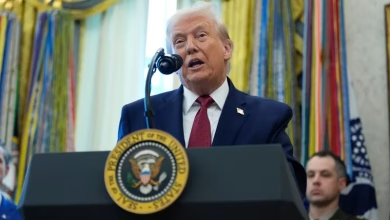A court has ruled that police can seize over £2 million from controversial influencer Andrew Tate and his brother Tristan, after they failed to pay tax on £21 million of revenue from their online businesses. The ruling was made by chief magistrate Paul Goldspring at Westminster Magistrates’ Court, who described the brothers’ financial arrangements as a “straightforward cheat of the revenue”.
The court heard that the brothers had paid just under $12 million into an account in the name of a third person, J, who had no role in their online businesses. The businesses, which include the War Room, Hustlers’ University, Cobra Tate, and OnlyFans, had generated £21 million in revenue between 2014 and 2022.
Devon and Cornwall Police had sought to seize the funds, which are held in seven frozen bank accounts, arguing that the brothers had “engaged in long-standing, deliberate conduct in order to evade their tax”. The force’s lawyers told the court that Andrew Tate had publicly declared that he had not paid tax in the UK and had adopted an approach of “ignore, ignore, ignore because in the end they go away”.
In his written ruling, Judge Goldspring said that he was “satisfied” that the brothers had given the court no evidence relating to tax payments, but had insisted through their lawyers that the movement of the cash had been legitimate business activity. He also noted that one of the accounts had been used to move money in relation to allegations of human trafficking in Romania.
Andrew Tate responded to the ruling by saying that he had been the victim of “the matrix” and “outright theft”. “It’s a coordinated attack on anyone who dares to challenge the system,” he said in a statement. “Speak against the matrix, and they’ll come for your freedom, your reputation, and your livelihood.”
The Tate brothers deny allegations of human trafficking and rape, which are being investigated by Romanian authorities. A judge in Bucharest has said that a separate extradition request from Bedfordshire Police will be dealt with after the conclusion of the case in Romania.
Devon and Cornwall Police welcomed the judge’s decision, saying that it demonstrated that the brothers had evaded taxes and laundered money through bank accounts located in Devon. The force’s spokesperson said that the brothers had concealed the origins of their income by channelling money through “front” accounts, constituting criminal activity and rendering those earnings proceeds of crime.
